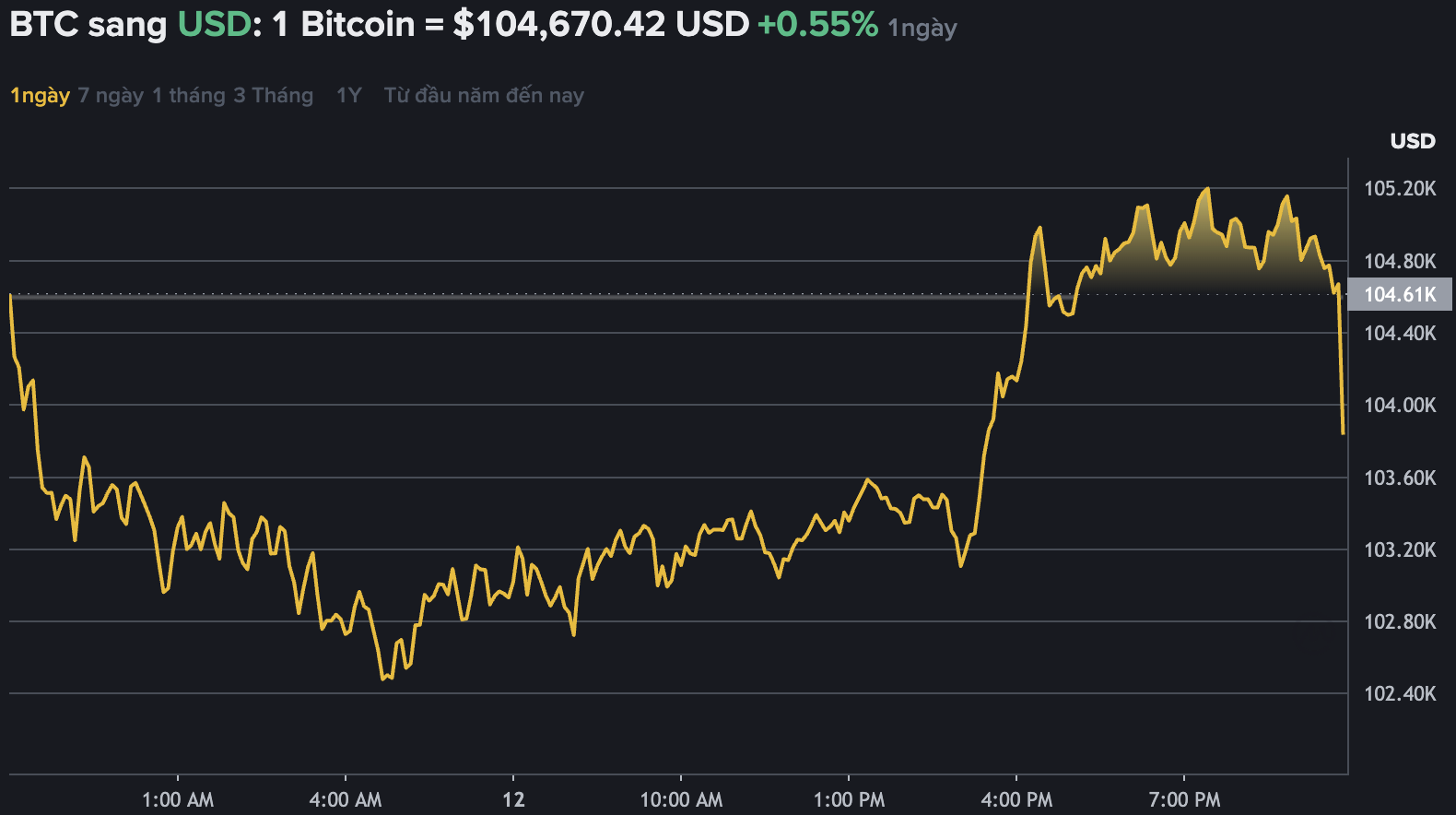Bitcoin price: Slight recovery
This morning (November 13), Bitcoin (BTC) - the world's largest cryptocurrency in terms of market value "turned around" to increase slightly by 0.55%, reaching 104,670.42 USD.

This new price contributes to bringing market capitalization to 2,087 billion USD, up 23 billion USD. In contrast, trading volume in the 24-hour reversal decreased by 13.57 billion USD, reaching 57.84 billion USD.
Assessment and forecast
Business demand for Bitcoin (BTC) slowed in October, although total holdings of companies, governments and ETFs reached record highs, showing that the business sector is moving from a strong accumulation phase to a defensive state on the accounting balance sheet.
According to an October report from BitcoinTreasuries.net, listed and private companies bought only 14,447 BTC more in the month, the smallest increase since the beginning of the year. This figure decreased sharply compared to September, when corporate funds had purchased more than 38,000 BTC in the context of rising Bitcoin prices and positive market sentiment.
However, total holdings continued to increase, reaching 4.05 million BTC at the end of October, equivalent to about 444 billion USD. Of which, listed enterprises own about 1.05 million BTC, the government holds 644,329 BTC, and ETFs and exchanges hold 1.54 million BTC.
Selling activities were almost insignificant, with a total of only 39 BTC sold by enterprises in the month, according to the report.
Meanwhile, the ability to mobilize capital becomes more difficult due to reduced stock valuations and increased risk offset, forcing companies to rely on more expensive mobilization channels such as issuing preferential stocks or borrowing credit, instead of issuing common stocks at low costs as before.
The recent slowdown has occurred as many Treasury entities are shifting their focus to capital optimization tools, such as buying back stocks, instead of buying Bitcoin periodically on a large scale.
Business leaders said that these measures aim to protect the ratio of Bitcoin per share and limit the negative impact of stock valuations below net asset value - a factor that has weighed on stock prices this year.
According to Decrypt analysts, despite the declining buying speed, businesses continuing to accumulate contributes to the Bitcoin market becoming scarcer, prices remaining within a narrow range while short-term investors are pessimistic.
Fidelity estimates that listed companies currently account for about 5% of the supply of under-liquidated Bitcoin, and this ratio could reach 42% of the total supply by 2032.
For businesses, long-term investors and organizations that tend to hold for a long time to account for the majority of this group, the gap between slowing buying speed and record holding shows that businesses are "waiting" for clearer recovery signals from investors before returning to strong buying.











